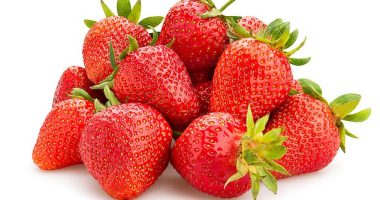Registered dietitian and neuronutritionist Melanie Murphy Richter, MS, RDN, says a warm cup of tea can be a great at-home remedy for helping a pesky headache go away. “Certain teas can have anti-inflammatory and muscle-relaxing benefits that can help alleviate headaches,” Richter says. But not all brews are created equal when it comes to relieving headaches; there are some blends that are even more effective than others due to their unique herbal properties.
Experts In This Article
Ahead, Richter reveals the best tea for headaches and what makes these brews so effective in helping reduce your symptoms so you can get back to feeling tea-rrific in no time.
The best drink for a headache
Aside from plain old-fashioned water, tea is one of the best drinks for headaches. Richter says teas can help relieve headaches in a variety of ways. For starters, she says that teas with a small amount of caffeine—we’re talkin’ less than 100 milligrams—can help increase blood flow in the brain, otherwise known as a vasodilating effect. This reaction can help enhance the effectiveness of pain-relieving medications. “In fact, most migraine-specific headache medication has a certain amount of caffeine included for these very reasons,” Richter says.
Keep in mind, however, that having too much caffeine can have the opposite effect and potentially trigger headaches. (Don’t quit caffeine cold turkey if you’re a heavy caffeine drinker, which can cause caffeine withdrawals and migraines. Slow and steady wins the race, fam.)
Herbal teas (which typically don’t have caffeine) can also help get rid of headaches by targeting various other causes of headaches and migraines. The specifics just depend on what ingredients are in the teas. For example, Richter says teas with certain anti-inflammatory herbs and antioxidants like polyphenols (a compound found in many plants) can help reduce the severity and recurrence of headaches (since excess inflammation can be a headache trigger). If stress and anxiety are playing a role in the onset of tension headaches and migraines, Richter recommends opting for teas with relaxation-boosting benefits (think chamomile or lemon balm) to quell these symptoms. On the other hand, certain types of herbal teas (like peppermint) can also help relax the head and neck muscles that may be contributing to tension or sinus-related headaches.
Dehydration is also a big headache trigger—and something that tea can help alleviate. “Tea can count towards our overall water consumption; herbal teas can contribute to overall hydration status and therefore are a great adjunct therapy for headache management,” Richter says. Tea can help boost electrolytes, which goes hand in hand with hydration. “Electrolytes like sodium, magnesium, and potassium are essential for properly utilizing hydration in the body. The regular consumption of tea can not only help to keep us hydrated, but it also can contribute certain electrolytes to ensure our cells can absorb the water better,” she says.
Is tea good or bad for migraine?
Tea is good for migraines for many of the same reasons that it’s good for headaches: a lot of the compounds in tea (like caffeine and antioxidants) can help reduce migraine symptoms.
Older research used to suggest that the caffeine in tea was a potential migraine trigger. But a study published in 2023 in the journal Scientific Reports found that there was no causality between drinking tea and migraines1. (Translation: There’s no proof that drinking tea causes migraines.) In fact, the caffeine in tea can help your migraines.
That said, don’t expect tea to be a miracle cure for migraines, which can be incredibly debilitating. There’s no shame in taking meds, trying certain yoga poses, dunking your face in ice water, or any other useful tools you find helpful to treat or manage migraines.
6 best teas for headaches and migraines
1. Peppermint
Richter says peppermint tea should be your top choice for alleviating a headache, especially if you’re dealing with tension, sinus, or migraine-related symptoms. “One of the ultimate teas for any type of headache is peppermint,” she says.
According to Richter, peppermint can help regulate the circulatory system by increasing blood flow to help relieve headache symptoms. “Peppermint can have a vasodilating effect on the circulatory system2, which means that it can help widen blood flow to the brain. This makes it especially helpful for any type of headache where blood flow is restricted,” she says. Plus, peppermint also contains menthol, which Richter says can help relax the muscles3 of the head to help alleviate headaches.
2. Ginger
If you tend to experience nausea or an upset stomach due to headache pain, Richter says sipping on ginger tea can help. “Ginger is an anti-inflammatory herb and can also relieve nausea, which is a symptom of migraines,” she says. Ginger contains an active compound called gingerol that research shows can potentially modulate serotonin receptors in the GI tract4, thus reducing the signals that trigger nausea and vomiting.
3. Chamomile
If you’re dealing with tension or sinus headaches, Richter says chamomile may be your cup of tea as it can act as a mild muscle relaxant. Meanwhile, if you’re experiencing headaches associated with indigestion, chamomile can be used as a digestif to help boost digestion. And if headaches are keeping you awake at night, Richter says the “mild sedative-like quality” of chamomile tea can potentially help you relax into a slumber.
4. Lemon Balm
If anxiety is triggering your headaches, Richter recommends lemon balm tea. “Lemon balm is especially helpful for reducing anxiety5 that can contribute to tension headaches or migraines,” she says. “Lemon balm can reduce muscle spasm linked to headaches,” she says.
5. Lavender
Similar to lemon balm tea, Richter says lavender tea is ideal if anxiety or stress are contributing to your headaches. “Lavender has been used for centuries as a relaxation herb. It can be especially helpful for reducing stress and reducing cortisol,” she says. This can be particularly helpful for treating migraines or tension headaches that can increase cortisol levels.“Because of its calming qualities, lavender can also help you fall asleep and stay asleep, which can help you recover from headaches more quickly,” she adds.
6. Feverfew
According to Richter, drinking feverfew tea—which comes from a flowering plant in the daisy family—regularly can help stave away headaches. “When used more regularly, feverfew can help reduce the frequency, severity and recurrence of migraines6 by inhibiting the release of prostaglandins and serotonin, both of which can exacerbate migraines,” she says. The tea also contains antioxidants that help reduce oxidative stress in the body, which can be beneficial in reducing inflammation related to migraines, Richter says.
How much tea should you drink to relieve headaches?
According to Richter, one to two cups of tea a day is a good starting point, but this can vary from person to person. Tea (particularly the caffeine-free kind) can be consumed virtually anytime, with or without food. But if sleeping off a headache is the goal, Richter recommends sipping your tea closer to bedtime. “Drink certain teas like chamomile or lavender teas closer to bedtime because they are likely to make you sleepy,” she says. On the other hand, teas with higher levels of caffeine—like green tea or matcha—should be consumed earlier in the day.
When preparing your cup of tea, Richter says it’s best to make it plain and simple—no added sugar or cream, fam. “Ideally, you should drink your tea without sugar. Sugar can be an independent trigger for headaches. And for some—even those without an intolerance—dairy can also trigger inflammation. For the best results, drink tea without either sugar or dairy,” she says.
When to get professional help for headaches
Although tea can be a great at-home remedy for alleviating mild headache symptoms, Richter points out that if you get headaches more frequently than normal, or if your headaches get more painful, it’s best to talk to a health-care professional, as it may be a sign of a more significant issue. Richter also recommends seeing a health-care practitioner about your headaches if:
- Over-the-counter of alternative remedies aren’t helping
- You are frequently sick (dizziness or vomiting) as a result of your headaches
- Headaches are significantly impacting your ability to perform normal, daily activities
- You are experiencing aura headaches, which impact vision and eyesight
- You have an underlying health condition and certain medications might interfere with managing other health conditions
Unwind for the night with this dreamy lavender latte drink:
Well+Good articles reference scientific, reliable, recent, robust studies to back up the information we share. You can trust us along your wellness journey.
- Jin, Chen et al. “Noncausal effects between tea intake and migraine risk: a Mendelian randomization study.” Scientific reports vol. 13,1 12898. 9 Aug. 2023, doi:10.1038/s41598-023-40171-z
- Silva, Henrique. “Current Knowledge on the Vascular Effects of Menthol.” Frontiers in physiology vol. 11 298. 7 Apr. 2020, doi:10.3389/fphys.2020.00298
- Li, Ziping et al. “The distinctive role of menthol in pain and analgesia: Mechanisms, practices, and advances.” Frontiers in molecular neuroscience vol. 15 1006908. 5 Oct. 2022, doi:10.3389/fnmol.2022.1006908
- Lete, Iñaki, and José Allué. “The Effectiveness of Ginger in the Prevention of Nausea and Vomiting during Pregnancy and Chemotherapy.” Integrative medicine insights vol. 11 11-7. 31 Mar. 2016, doi:10.4137/IMI.S36273
- Ghazizadeh, Javid et al. “The effects of lemon balm (Melissa officinalis L.) on depression and anxiety in clinical trials: A systematic review and meta-analysis.” Phytotherapy research : PTR vol. 35,12 (2021): 6690-6705. doi:10.1002/ptr.7252
- Pareek, Anil et al. “Feverfew (Tanacetum parthenium L.): A systematic review.” Pharmacognosy reviews vol. 5,9 (2011): 103-10. doi:10.4103/0973-7847.79105
Source: Well and Good








